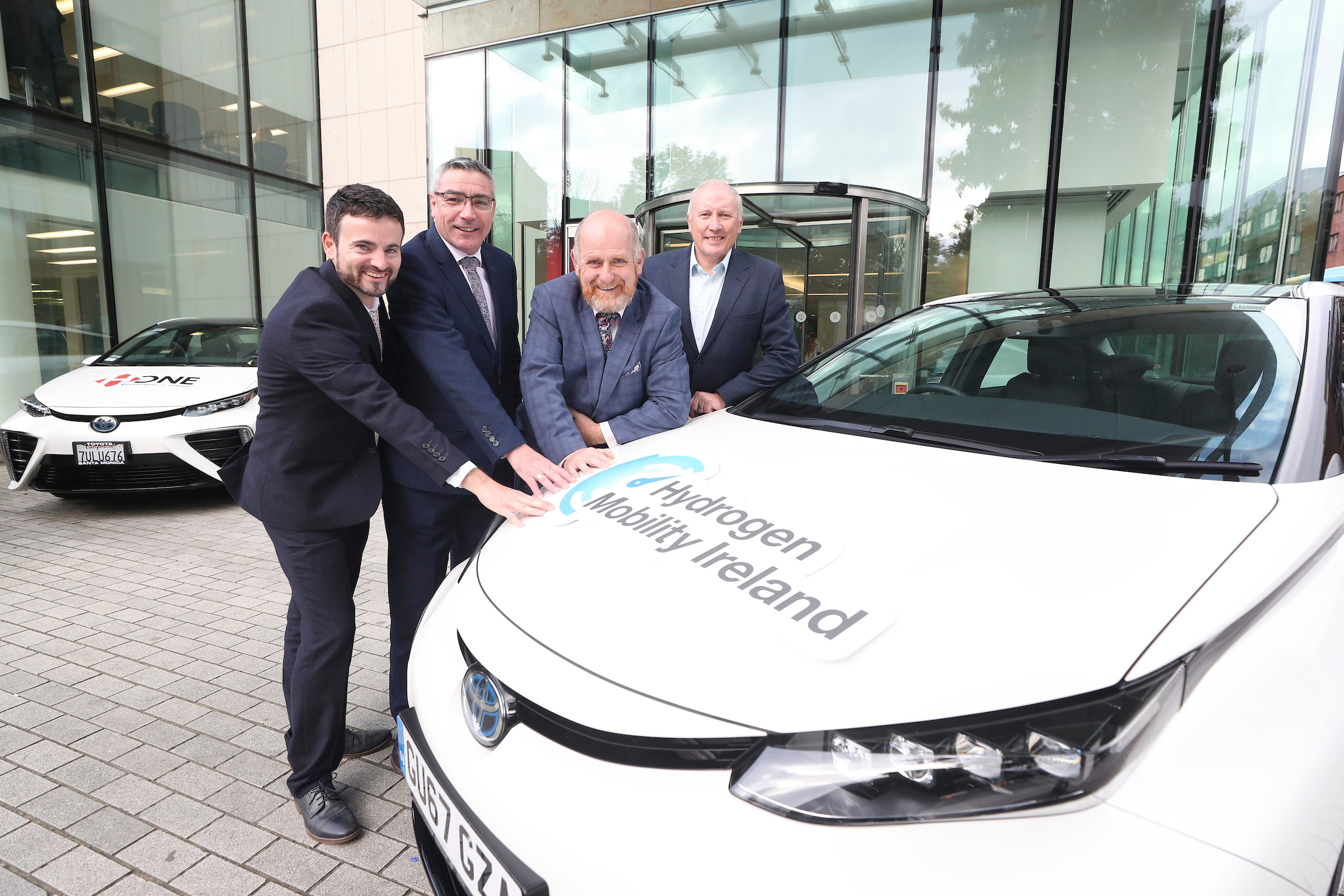Ben Madden, Director of Element Energy writes:
Hydrogen Mobility Ireland is a grouping formed to bring hydrogen transport to Ireland. The group consists of leading transport and energy companies along with policy stakeholders and representatives of other hydrogen initiatives.
The group has been active for just over a year. In the first months of the project, the partners worked together with consultancy Element Energy to define a strategy for the way hydrogen mobility can be rolled out in Ireland in the period 2020 to 2030. The report can be downloaded at: http://www.element-energy.co.uk/wordpress/wp-content/uploads/2019/10/20190930-Hydrogen-Mobility-Ireland-Final-External-Report.pdf
Since this first report was published, the partners have been focused on planning and obtaining funds for the first deployment project which will be based in Dublin. This will involve a combination of buses and cars (in long distance applications such as taxis) and will be served by hydrogen coming from new renewables-linked electrolysers. This is expected to have strong links to the Translink bus project which is already underway in Belfast. The large deployment project will be preceded by a series of trial activities in 2021 which will prove the operational viability of the hydrogen fuelled vehicles and of hydrogen as a fuel for Ireland.
In addition, the group has been planning for a subsequent expansion across Ireland, where buses and cars will be joined by trucks, vans and other heavy-duty transport modes. At this stage, the focus is on ensuring the policies and associated codes and standards are in place to permit a rapid roll-out, following success in the first deployment project.
Element Energy continues to provide secretariat support services to the group and have said ”Hydrogen Mobility Ireland is a good example of the kind of ambitious industry led initiatives which are now appearing around Europe. These initiatives have tended to focus on large scale production of essentially zero carbon hydrogen from either direct renewable-coupled electrolysers (the majority) or generation from hydrocarbons with a link to capture and storage of the associated CO2 emissions. They are also increasingly focussed on the supply of hydrogen to heavier vehicle classes such as buses, trucks, trains and ships.
These projects are all in various stages of feasibility and funding acquisition. The next challenge is to move from the studying and engineering phase into implementation. This will require the hydrogen industry to convince policy makers on the value of hydrogen in a net zero carbon energy system and the importance of moving to scale to make the economics of hydrogen energy systems viable. Once policy makers are satisfied about the potential of hydrogen at scale, they can then be called upon to help the sector with supportive policies as it scales up. As the sector grows, it requires large investments, which carry risks which any individual company cannot bear alone. This is partly because the demand side (vehicles) needs to grow at a similar rate to the supply side (deployment of hydrogen production assets), which requires coordination. It is also because the long-term outlook for hydrogen mobility (and hence long term demand certainty) need to be underpinned to allow long term financing of these large assets.
In this respect, Hydrogen Mobility Ireland is greatly helped by the involvement of a number of policy makers in an observer role, who can hear the findings of the industrial partners and help to shape the thinking as the group defines its ask of policy makers. It is also helped by having created a phased approach (in the 2020-2030 roadmap) whereby confidence building (and profitable) investments can be made in stages as hydrogen mobility rolls out and demonstrates its attractiveness to customers across Ireland.”

